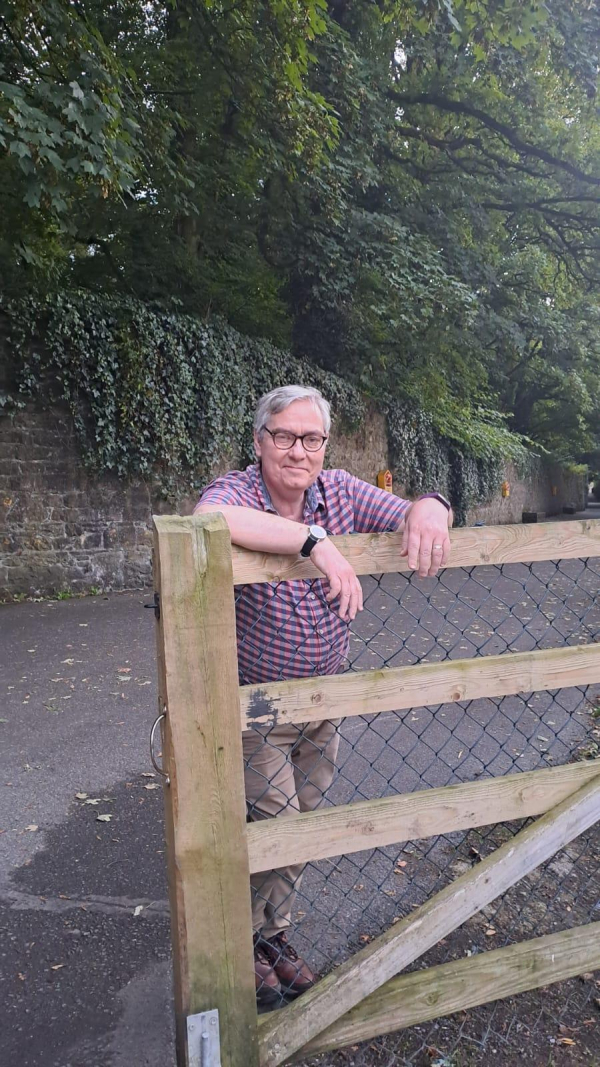
Monday 29th September marks World Heart Day and with coronary heart disease being the biggest single cause of premature death in people younger than 75 in Northern Ireland and 185,554 people here living with circulatory conditions, local health charity Northern Ireland Chest Heart & Stroke (NICHS) is using the day to put a spotlight on heart health.
John Meikleham, from Belfast, was on his way into work at the cardiac surgical unit in Belfast when he had a massive heart attack at the front door of the hospital. John was only in his forties and ultimately had to have a heart transplant. He is sharing his story this World Heart Day to help raise awareness.
John recalls; “I had my heart attack when I was 46. I had a bad family history as my father died when he was 56 and some of my uncles died in their fifties and early sixties as well.”
“I knew I had angina and had an operation to insert a stent but unfortunately there was a complication, and the procedure had to be abandoned. I was waiting on a second stent when I had a heart attack on the way into work. I spent the next three weeks in intensive care on a ventilator. Within a couple of months, I recovered enough to have a defibrillator implanted and was transferred to the Freeman Hospital in Newcastle in England to be assessed for cardiac transplant.”
“I was on the transplant list for about eleven months when I started to show a slight improvement, so I was taken off the list again. I then lived with heart failure for fifteen years before having an LVAD implanted in 2019. This is a mechanical device that’s used to pump blood around the body when the heart is too weak to pump blood on its own. I was able to get by with that for two and a half years before needing a transplant again, which I had in 2022.”
“There was a lot of doom and gloom before the cardiac transplant because I had lived with heart failure for so long. I had an LVAD with lots of complications for two and a half years and spent hundreds of days in hospital. Cardiac transplant is a very difficult surgery, and it took about twelve hours. I was off the ventilator four hours after the surgery however and was talking to my wife by video call eight hours after that. I recovered remarkably well thankfully.”
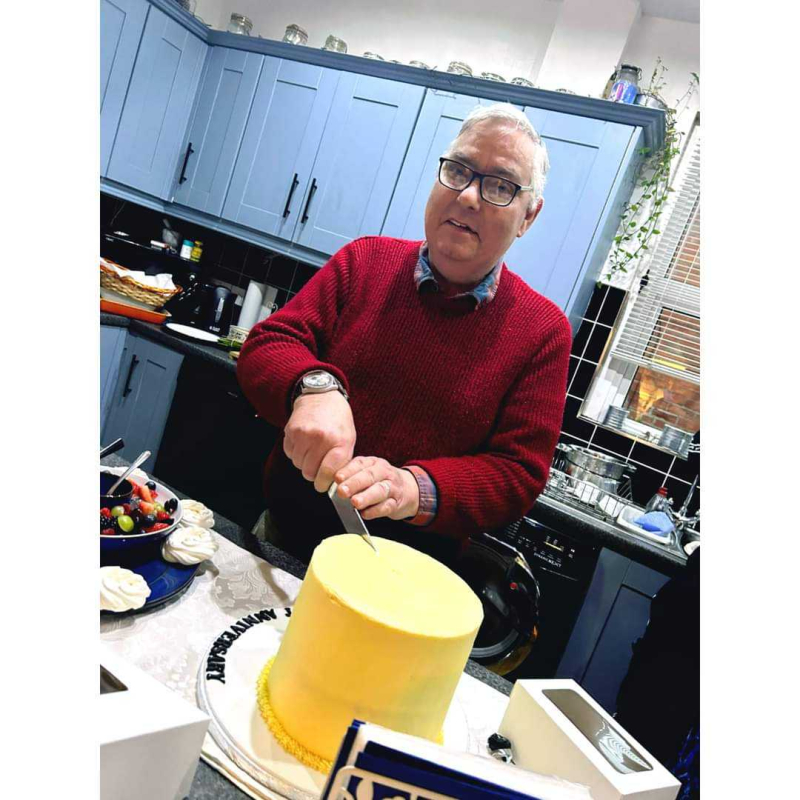
John feels lucky to have had his transplant and is very grateful to his donor and their family for their courage.
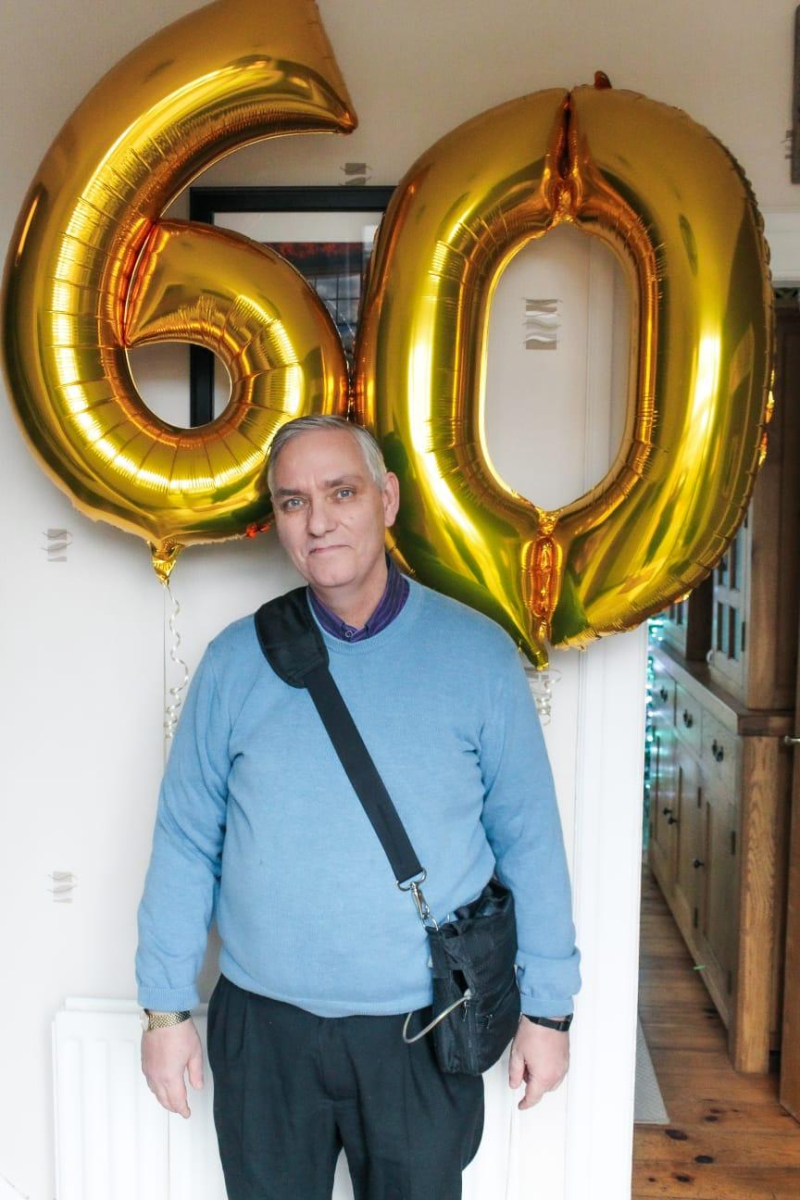
Prior to his transplant John had an LVAD implanted. This is a mechanical device that’s used to pump blood around the body when the heart is too weak to pump blood on its own.
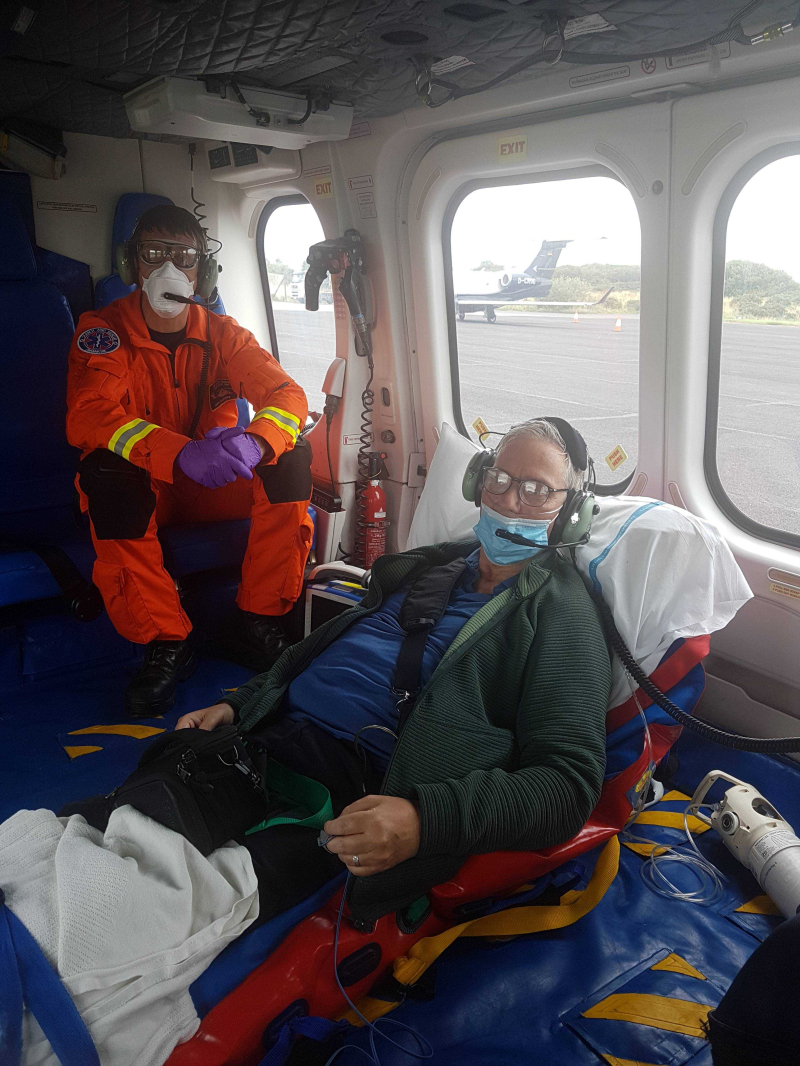
Following a heart attack at just 46 years old John lived with cardiac issues for years before eventually being transferred to the Freeman Hospital in Newcastle, England for a heart transplant.
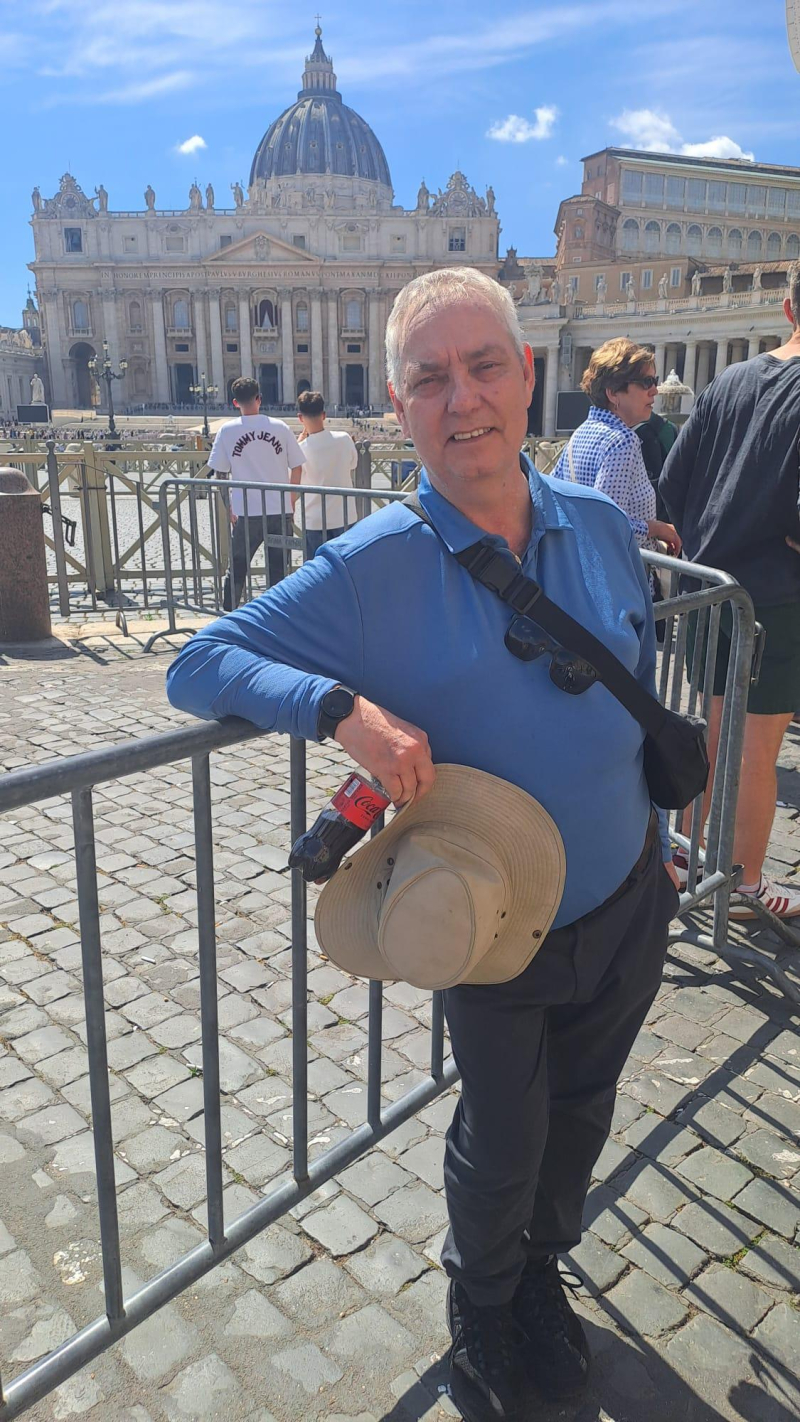
John recovered well after his transplant and now wants to use his experiences to raise awareness of heart health as well as the importance of organ donation.
Speaking about the signs something wasn’t right with his cardiac health John says; “The lead up to my heart attack was typical. There was chest pain and shortness of breath. The shortness of breath is what I noticed originally but I made the assumption that I wasn't fit rather than something could be wrong with me health wise. Like many people my fitness could have been better. I was relatively fit, but my job didn't allow me too much time to be particularly good at that. I worked in the cardiac surgical unit in Belfast for 29 years which involved long hours and shift work.”
“I went to my GP and had an ECG which didn’t show anything was wrong but unfortunately you can have a normal ECG and still have coronary heart disease. I had a heart stress test. This test looks at how your heart works when you are exercising and mine had to be stopped within a couple of minutes because of the results the test was showing as well as the pain.”
“In some ways I have two views of what happened to me. Number one, I should have known better. Regardless of working at the cardiac surgical unit, there were signs and symptoms that should have raised some concerns for me. Secondly, I had a heart attack at 46 years old. That means I almost certainly had coronary artery disease in my thirties. I feel like there should be better monitoring of people at a younger age, particularly for people with bad family histories. An ECG, blood pressure check, and a cholesterol test once a year would cost around £100. A reasonable estimate of the cost of my care to date is £1.5 million. Spending money can actually save money when it comes to health.”
Raising awareness of heart health is very important to John. “Things like eating a balanced diet, not smoking, being physically active and so on, there are steps we can all take to help reduce our risk when it comes to cardiac conditions and that is what I want to raise awareness of.”
“It isn’t just people in their sixties and seventies who are affected by heart issues, younger people can be too. Awareness of lifestyle factors is key but so is understanding the subtle signs that can start to appear that something is wrong and how important it is to have these investigated. For me, if I look backwards my lessons are, be more aware of my own body and what's happening to me and don’t be reluctant to go and get a potential issue checked out, which unfortunately many men are.”
John is also passionate about raising awareness of the importance of organ donation. “People should talk about organ donation and transplants and what their wishes are more. It saved my life, and I wouldn’t be here without my transplant, so I was incredibly lucky. I am very grateful to my donor and his family for their courage.”
“I also ended up having to have a transplant because I ignored some of the symptoms that were creeping through so I would urge people, please don’t do that. You don’t want to end up on a transplant list potentially unnecessarily. If there is anything you aren’t happy about health wise, have it checked out.”
Wanting to do something positive despite everything he has been through John became involved with NICHS’s Care Services Advisory Group. The group was set up to involve and listen to people who are living with chest, heart and stroke conditions with goals to improve NICHS services, increase collaboration with healthcare professionals, and improve awareness of chest, heart and stroke conditions.
John explains; “I’ve been a volunteer in some capacity since I was 16 but had to give most of what I did up in the run-up to my cardiac transplant. Afterwards I was looking for something to do and saw the group advertised. Given my history and background, I was interested in the potential to do something positive with the group. I very much enjoy it, and I've got a lot from it in terms of my own wellbeing with getting out and being part of something. I had to give up my career in the hospital due to my health. One day I was working in the cardiac unit, the next I was in intensive care, and I never went back to work again. I think people feel a sense of loss when that sort of thing happens to them, so volunteering is important.”
“The services NICHS has developed in the 19 years since I had my heart attack are wonderful and include family support, the Taking Control Self Management Programme and the Heart Strong Education Programme with its peer support element. I would urge people affected by heart conditions to reach out and see how the charity might be able to help them.”
Fidelma Carter, Head of Public Health at Northern Ireland Chest Heart & Stroke, comments, “We are very grateful to John for sharing his story and raising awareness of heart attacks and heart health.”
“This World Heart Day we would urge people to remember the STOP acronym. Unfortunately, a lot of people don’t realise they are actually having a heart attack. If you notice yourself or someone else presenting with any of these symptoms, don’t wait, call an ambulance immediately.”
“The STOP acronym stands for:
S – Something’s not right – symptoms can start slowly
T – Tightness or pain in the chest, pain in the arm, neck, or jaw
O – Other symptoms such as shortness of breath, nausea, or sweating
P – Phone 999 immediately.”
“The sooner a potential heart attack is recognised, and the faster medical help is sought, the better the chances of recovery are.”
If you have been affected by a heart condition and need support visit https://nichs.org.uk/heart-support for further information about Northern Ireland Chest Heart & Stroke’s support services.
